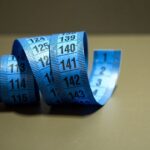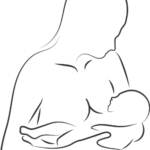Image credit to Benopeti.com
When Can Babies Eat Chocolate? Yes, chocolate is definitely irresistible. Children and adults alike love the smooth, creamy flavor, and at times the slightly bitter taste, one gets from chocolate treats, be it a large glass of chocolate milk or a small square of dark chocolate.
Chocolate has even been lauded for containing antioxidants and some heart-healthy properties.1 But is it safe for babies and toddlers? The short answer is yes, it’s safe for toddlers older than 2 years, but for younger babies, doctors recommend avoiding all the sugar and caffeine it can contain.
Chocolate Allergies in Babies and Kids
When Can Babies Eat Chocolate?
On the allergy front with chocolate and cocoa, researchers used to think that reactions to chocolate were because of some other allergen in the chocolate itself, like nuts, peanuts, or milk. However, a study in 2019 revealed that, although rare, both children and adults can have a true food allergy to chocolate and cocoa.
Experts agree that in most instances, concerns about probable allergic reactions to food shouldn’t prevent parents from introducing such allergenic foods as fish, eggs, and peanut butter to their kids. What the Experts Say About When Babies Can Have Chocolate
The American Academy of Pediatrics recommends not giving babies under 2 years old foods that contain caffeine or added sugar. Chocolate and chocolate products contain these ingredients. Food allergies are not a reason to delay offering your baby or toddler chocolate, but the added sugar and natural caffeine content are.
Also Read : Baby Getting Enough Breast Milk?
Caffeine
Besides the myriad of ingredients common to most chocolate foods, chocolate also contains caffeine. The side effects of caffeine on a developing child’s brain are a cause for concern, despite limited knowledge about its effects.
In fact, the guideline intake of caffeine is less than 2.5 mg per day for a child older than 2 years.6 There is also some evidence that caffeine can interfere with a child’s sleep, impact their bone health, and cause elevated blood pressure.
Consider the amount of caffeine your child will consume in the serving when deciding whether to give your child chocolate. Even foods like chocolate pudding cups and chocolate milk contain small amounts of caffeine.Added sugar
Children under 2 years should be given food without added sugar, according to experts. Too much sugar increases the risk of extra body fat, cavities, cholesterol, and type 2 diabetes. On the other hand, sugar accounts for about 17% of the daily intake of children.
For this reason, you should consider how much sugar your child is already getting before adding chocolate to their diet. Then, once you are at a birthday party or some other special occasion where you know your child will be tempted by cake or other sweet foods, you can be more flexible about bending if you want to treat your toddler to a small taste.
naken Hazards
You should also be cautious about potential choking hazards with chocolate. While a piece of chocolate birthday cake is probably not going to present a choking risk, many baked goods and chocolate candy bars do contain nuts and other hard ingredients that can be dangerous for a very young child. So, keep those things in mind before handing over something chocolatey to your child.
Tip
When Can Babies Eat Chocolate?
What’s important is reading labels and having a plan with your child’s pediatrician about when and how to introduce certain foods. Consult with a healthcare professional about how and when to offer chocolate to your child.
Help Your Toddler Learn to Limit Sweets
If your older toddler requests sweet foods like cakes or cookies, consider serving dessert on occasion to promote balance. Simply put the dessert food on the plate along with all the other foods and let your child eat the foods in whatever order they desire. When presenting food in this manner, people will not perceive other foods as being elevated above dessert.
It also changes it from a “reward” food or a bribe to just another option among many. However, because of the small amounts of caffeine and sugar in chocolate, it’s probably best to opt for non-chocolate desserts until kids are a little older.










